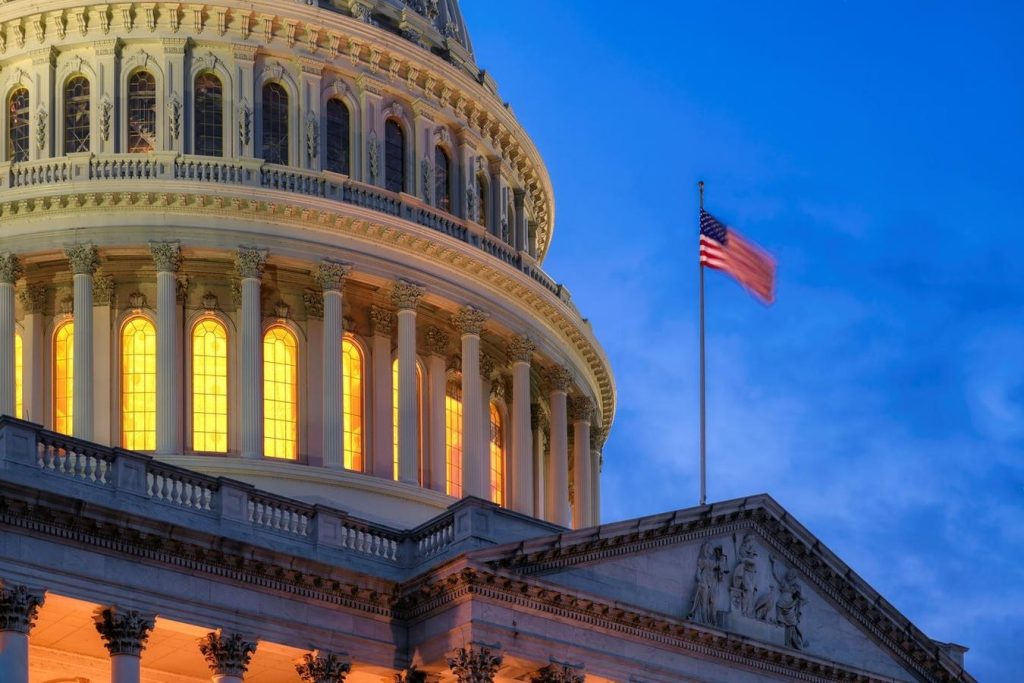Government Funding Showdown: Congress Races Against Clock to Avert Shutdown
With the holiday season in full swing, a familiar specter haunts the halls of Congress: the threat of a government shutdown. The deadline looms large, with funding for several federal agencies set to expire on December 20th. Despite ongoing negotiations, the House and Senate remain locked in a stalemate over spending, leaving the government teetering on the brink of a partial closure. Rather than crafting a comprehensive budget for the fiscal year, lawmakers are scrambling to cobble together a temporary fix – a continuing resolution to extend funding into March 2025, mirroring last year’s approach. This stopgap measure would effectively keep the government running, but it also perpetuates budgetary uncertainty and risks significant consequences for agencies like the IRS.
The current predicament is a consequence of Congress’s inability to pass a full-year budget by the September 30th deadline. To avoid a shutdown then, a continuing resolution was passed, pushing the decision to December. This temporary solution, however, only delayed the inevitable showdown over spending priorities. While the resolution largely maintained funding at fiscal year 2024 levels, it included some notable cuts, particularly to the IRS, setting the stage for the current impasse. As the clock ticks towards the December 20th deadline, the pressure mounts on Congress to find a solution, even if it’s just another temporary patch.
Central to the current debate is the funding fate of the IRS. The agency, already reeling from previous budget cuts, faces the prospect of further reductions should the proposed continuing resolution pass. The Inflation Reduction Act of 2022 allocated $80 billion in additional funding to the IRS over ten years, primarily for enhanced enforcement, technological improvements, and improved customer service. Subsequently, as part of the debt ceiling agreement and other legislative maneuvers, the IRS has seen significant chunks of this funding rescinded. A continuing resolution based on 2024 funding levels would effectively codify these cuts, leading to an estimated $20 billion reduction in the agency’s budget.
The Treasury Department has warned that such drastic cuts would have severe repercussions, projecting a $140 billion increase in the deficit over the next decade. This surge in the deficit stems from the IRS’s diminished capacity to collect taxes, particularly from high-income earners, who have historically been subject to lower audit rates. While some taxpayers, fueled by online polls and anti-IRS rhetoric, may cheer these cuts, the Treasury Department argues that they will ultimately harm ordinary taxpayers, leading to reduced service quality and longer wait times. The agency anticipates a significant decline in its ability to answer taxpayer calls and a dramatic increase in average wait times, should the proposed cuts go through.
The IRS contends that the previously allocated funding has already yielded tangible improvements in taxpayer service. The agency cites increased call response rates, reduced wait times, and the successful launch of Direct File, a free online tax filing program, as evidence of the positive impact of the additional resources. Despite these achievements, some members of Congress remain skeptical and have even called for the program’s termination. Ironically, figures like Elon Musk and Vivek Ramaswamy, associated with streamlining government operations, have also proposed similar free filing initiatives, highlighting the complexities of the debate surrounding IRS funding.
The looming shutdown also echoes previous political battles over government spending. Last year, then-candidate Donald Trump urged Congressional Republicans to force a shutdown if their demands weren’t met, suggesting that the political fallout would land squarely on President Biden. Despite the internal divisions within the Republican party, Congress ultimately averted a shutdown with a last-minute continuing resolution. The current situation mirrors this dynamic, with the potential for political posturing and brinkmanship as the deadline approaches. The outcome remains uncertain, with the possibility of both a last-minute agreement and a disruptive government shutdown still on the table.
Adding another layer of complexity to the negotiations is the inclusion of disaster relief and farm aid. Some members of Congress, from both sides of the aisle, are advocating for additional funding for farmers impacted by recent hurricanes and economic downturns. The American Farm Bureau Federation has called on Congress to provide disaster relief and economic support to struggling farmers. However, disagreement persists on how to pay for this aid, further complicating the already fraught negotiations. House Republicans have stated their opposition to any continuing resolution that does not include these provisions, setting up a potential showdown. Furthermore, procedural rules within the House require the release of the continuing resolution text 72 hours before a vote, further constricting the already limited time available for a resolution. The combination of these factors – the impending deadline, disagreements over IRS funding, and the push for farm aid – makes the prospect of a government shutdown increasingly likely.










